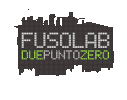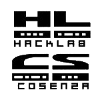Indice
Why use mod_wsgi?
See the mod_wsgi homepage.
![]() Please note that its "daemon mode" should be the preferred way to use it (and this is the reason to prefer mod_wsgi over mod_python).
Please note that its "daemon mode" should be the preferred way to use it (and this is the reason to prefer mod_wsgi over mod_python).
Basic configuring
- Install mod_wsgi
- Set up a wiki instance
Edit wikiconfig.py
- Changes to Apache configuration
- Restart Apache
The sample configurations below are for a wiki instance called mywiki installed in a directory /var/www/moin/mywiki with the main MoinMoin installation installed in python's default site library path. The wiki appears as URL /mywiki under the server - ie http://my.ser.ver/mywiki. You will need to change these to reflect your installation.
Install mod_wsgi
Most people will just add a mod_wsgi package to their current operating system installation. If you are building from source then you should consult the mod_wsgi documentation (it is rather easy if you have a development environment installed).
Make sure you have this line in your apache configuration or mod_wsgi will not work:
LoadModule wsgi_module modules/mod_wsgi.so
After this restart Apache and make sure that it starts successfully (also check the the error log).
Set up a wiki instance
This is done as shown in WikiInstanceCreation. Its recommended to first configure the wiki with cgi and check that it works, then change the configuratin to use mod_wsgi. This allows you be sure that any problems are in the mod_wsgi transition rather than the basic MoinMoin installation.
- Copy moin.cgi into your wiki directory
Configure httpd.conf as cgi first:
Alias /moin_static160/ "/usr/share/moin/htdocs/" ScriptAlias /mywiki "/var/www/moin/mywiki/moin.cgi"
Restart Apache and make test that your wiki works.
Edit `wikiconfig.py`
Make sure you use only absolute paths:
data_dir = '/var/www/moin/mywiki/data/' data_underlay_dir = '/var/www/moin/mywiki/underlay/'
Test that the wiki works after this change.
Changes to Apache configuration
After your wiki is running as cgi script, convert it to run with mod_wsgi.
If you run your wiki as cgi as we recommended before, remove or comment the ScriptAlias directive:
#ScriptAlias /mywiki "/var/www/moin/mywiki/moin.cgi"
Add this to the same virtualhost definition:
# this is for icons, css, js (and must match url_prefix from wiki config):
Alias /moin_static160/ /usr/share/moin/htdocs/
# this is the URL http://servername/moin/ you will use later to invoke moin:
WSGIScriptAlias /mywiki /var/www/moin/mywiki/moin.wsgi
# create some wsgi daemons - use someuser.somegroup same as your data_dir:
WSGIDaemonProcess daemonname user=someuser group=somegroup processes=5 threads=10 maximum-requests=1000
# umask=0007 does not work for mod_wsgi 1.0rc1, but will work later
# use the daemons we defined above to process requests!
WSGIProcessGroup daemonnamePlease also have a look into moin.wsgi - you maybe have to change some sys.path.insert instructions so Python can find the MoinMoin code and the wiki configuration.
Restart Apache - everything should now work correctly.
Configuring root wiki
See the same section on page HelpOnInstalling/ApacheWithModPython.








